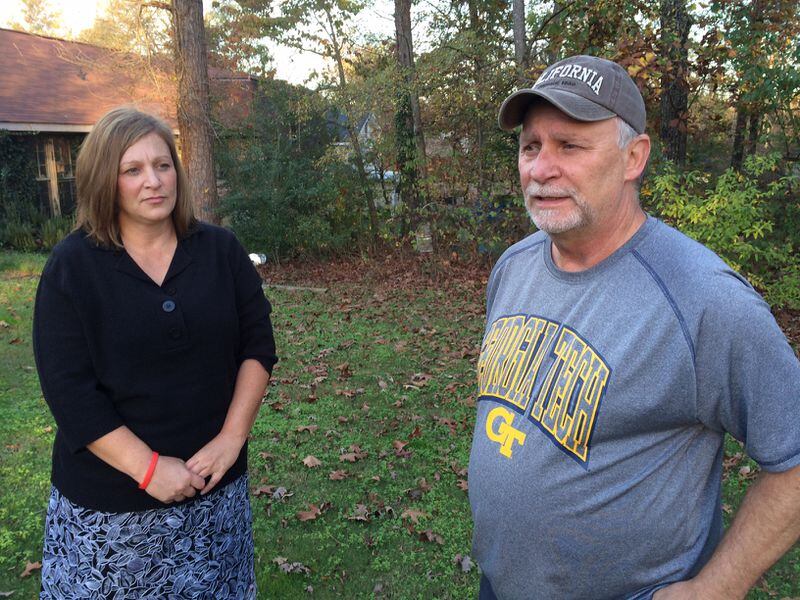When Lin Butler learned that his incarcerated daughter was sick and not getting the care she needed, he didn't waste any time in trying to call attention to the situation. The Rome security guard grabbed a pen, a piece of unlined white paper and sat down at his kitchen counter. There, he composed a letter to the man at the top. The very top.
"Dear Governor," Butler wrote in a one-page missive urging Gov. Nathan Deal to get someone to check on the medical treatment provided to the inmates at Emanuel Women’s Facility in Swainsboro.
Butler wrote that his daughter had “great pain” in her leg that might be a blood clot but couldn’t get an X-ray. He also noted that another inmate was “in very bad shape” after being sick for three weeks before being hospitalized.
“I’m a concerned father and concerned for other truly sick inmates that need a voice in this matter,” he concluded. “Thank you for anything you can do. Hope to hear from your office soon.”
Butler’s letter, written in July 2013, was at least the second warning to state officials that women at Emanuel were not getting adequate treatment from Dr. Yvon Nazaire, then the medical director there as well as at the larger Pulaski State Prison 80 miles away.
Yet neither those warnings nor others moved the needle enough to remove Nazaire from his position in the prison system until The Atlanta Journal-Constitution raised questions this year about inmates who died in his care as well as the validity of the employment history he listed on his job application.
Credit: Danny Robbins
Credit: Danny Robbins
In Mitzi Butler’s case, she said she suffered with severe abdominal pain for a month and wasn’t examined by Nazaire until her condition became so dire that she couldn’t get out of bed.
“It took everything I had just to walk to chow,” she said. “The officers knew I was so sick, so they didn’t make me (go).”
Butler said she woke up after surgery at Atlanta Medical Center and was told that her appendix had essentially “dissolved.” Then, for another week, she remained at the hospital while a bag attached to her side collected fluid from the infected area, she said.
“After the surgery, I asked the (surgeon), `How did this happen to me? Was it my appendix?’” she recalled. “He said, `Yes.’ I asked him, `Did it burst or what?’ He said, `I couldn’t even find it.’”
According to a spokeswoman for Deal, Butler’s letter was forwarded to Brian Owens, then commissioner of the Department of Corrections. Owens, now a member of the State Board of Pardons and Paroles, doesn’t remember the matter specifically, but his usual practice would have been to forward such a letter to the DOC medical director, a parole board spokesman said.
Whatever the case, Lin Butler notes that anyone who may have acted on his letter “acted too late.”



/cloudfront-us-east-1.images.arcpublishing.com/ajc/P7DYBH6TO7FEKG4SUXQQKADRXE.jpg)



